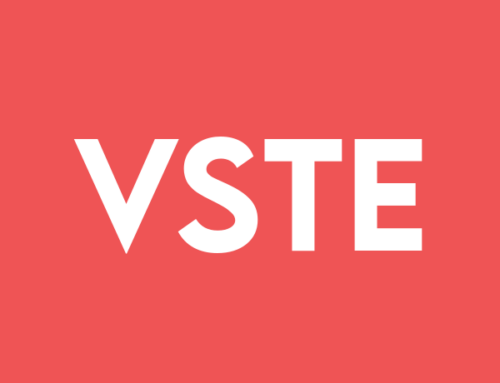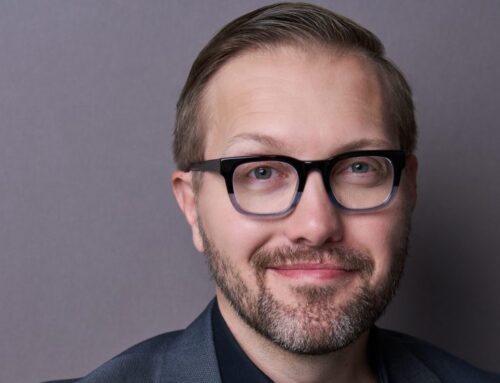In-depth: Investing to support refugees and their host communities
May 6, 2025

The number of people forcibly displaced due to war, persecution, violence and human rights violations, rose to 122.6 million in 2024, according to UNHCR, the UN Refugee Agency.
“We all know that refugee numbers are growing,” says Patrick Elmer, CEO and founder of iGravity, an impact investment management and advisory firm. “What most people don’t know is that these refugee crises last very long,” he adds, explaining that some of the biggest crisis last on average 25 years.

Last year, iGravity and the Danish Refugee Council (DRC), launched the Refugee Investment Facility (RIF) an innovative financing mechanism currently being trialled, combining impact investment and donor funding to meet the socio-economic challenges of the growing refugee crisis worldwide.
Elmer, who was previously the RIF’s chair and continues to sit on its board, says: “Whilst you have humanitarian aid coming in to meet basic needs, you also have a whole set of economic activity developing both inside and outside refugee camps, but there is no financing available to these entrepreneurs.”
DRC partnership
The opportunity to address this financing gap arose a few years ago when the DRC put out a call for proposals to analyse the opportunity for setting up innovative financing instruments in humanitarian settings. iGravity, which has expertise in emerging market private debt, was awarded the mandate.
“At the centre of the work of iGravity, is the belief that local businesses play an essential role in sustainable development. Local people understand the local context and know what’s most needed. Our role is to identify these entrepreneurs and mobilise finance as well as non-financial support towards them,” Elmer says, explaining that the idea for the RIF was developed off the back of the mandate.
“After working with the DRC, we got so excited by the possibilities that we decided to join forces to build an investment facility aimed at businesses that would provide employment and income or improve access to essential goods and services for refugees and their host communities.”
The RIF has been developed as a long-term blended finance facility offering impact-linked loans as well as technical support to SMEs in refugee settings across the world. Whilst its operating expenditure and technical assistance facility is wholly funded by grants, the investments themselves are funded by a combination of grant and investment capital from a range of donors and impact investors, including EU Humanitarian Aid, Novo Nordisk Foundation, Danida, Conrad N Hilton Foundation, Missionary Sisters of the Sacred Heart of Jesus, and the IKEA Foundation.
In the future, Elmer said the RIF plans to include both senior and subordinated debt in its funding structure to attract a wider range of investors.
The facility has raised $8m for the initial pilot phase and made four investments, including one investment in Jordan, which hosts the second highest share of refugees per capita globally and three in Uganda, which has the fourth largest population of refugees globally.
Both countries have progressive refugee regimes, in particular Uganda, where in addition to having freedom of movement, access to healthcare and education and a right to work, refugees are granted plots of land to build homes and farm.
“When we started, we did a market study to identify the best suited countries for the facility,” says Elmer, who adds that the regulatory environment dictated where they could invest.
“We identified the countries where refugees are permitted to move around and work and we also went on the ground to speak to local businesses to understand the type of financing they needed. We quickly realised that many small to medium-sized, locally-owned companies working in refugee settings and with the potential to be profitable were not able to access bank financing,” says Elmer, explaining the costs of due diligence made these businesses less attractive to larger investors.
The RIF decided it would step in to offer loans with interest rates linked to achieving pre-determined impact KPIs over time, incentivising companies by lowering the costs of repaying the loan the greater the impact achieved.
These KPIs are linked to four investment themes and corresponding impact targets, which include improving capacity and skills, providing access to decent work, driving financial inclusion and increasing access to goods and services.
“A typical portfolio company is a local business embedded in the community that works with both local people and refugees,” says Elmer.
Ugandan agricultural business Okeba Uganda is a case in point. The company, which was one of the first businesses to receive support through the RIF, aggregates, processes, and markets maize, soybeans, and beans. In the second season of 2023 it sourced produce from 8,000 farmers, of which about 2,500 (31%) were refugees.
Most recently, RIF announced its first investment in Jordan into Ali Dates, a company producing premium quality Medjool dates in the country’s Jordan Valley and employing both refugees and vulnerable host community members. Elmer says the company is notable for its relatively strong labour standards and its ambitions to upgrade production capacity and double seasonal employment, mainly of refugees. It also plans to extend seasonal contracts for its workers. The RIF’s investment was made through a Shariah-compliant loan used to purchase an automated date sorting machine to improve efficiency.
“The way it is structured is that Ali Dates is buying back the machine from us over time through regular instalment payments,” he explains.
In addition to the loans already disbursed, the RIF has a further three investments in the pipeline in Uganda with local microfinance institutions (MFIs) serving refugees, including the Rural Finance Initiative (RUFI).
“RUFI is a great story. The MFI was born in South Sudan but when the war started and many of its customers fled over the border to Uganda, RUFI went with them settling in Northern Uganda,” says Elmer.
The RIF aims to reach 10 investments by the summer as part of its pilot phase before scaling to other markets and is in discussions with development finance institutions and family offices to join their investor pool.
“In the next phase we want to raise $25m and work across multiple countries in the Middle East and in East and Southern Africa. We also want to add Colombia which has a very large number of refugees from Venezuela as well as many internally displaced people,” he adds.
To support the long-term socio-economic development of countries and regions that are host to large numbers of refugees, Elmer highlights the importance of changing the narrative around refugees as simply victims.
“Of course refugees suffer terrible injustices, but they should not be thought of only as victims. They can also become active members of society, they can contribute to the local community and help host countries prosper,” he adds.
Search
RECENT PRESS RELEASES
Related Post



